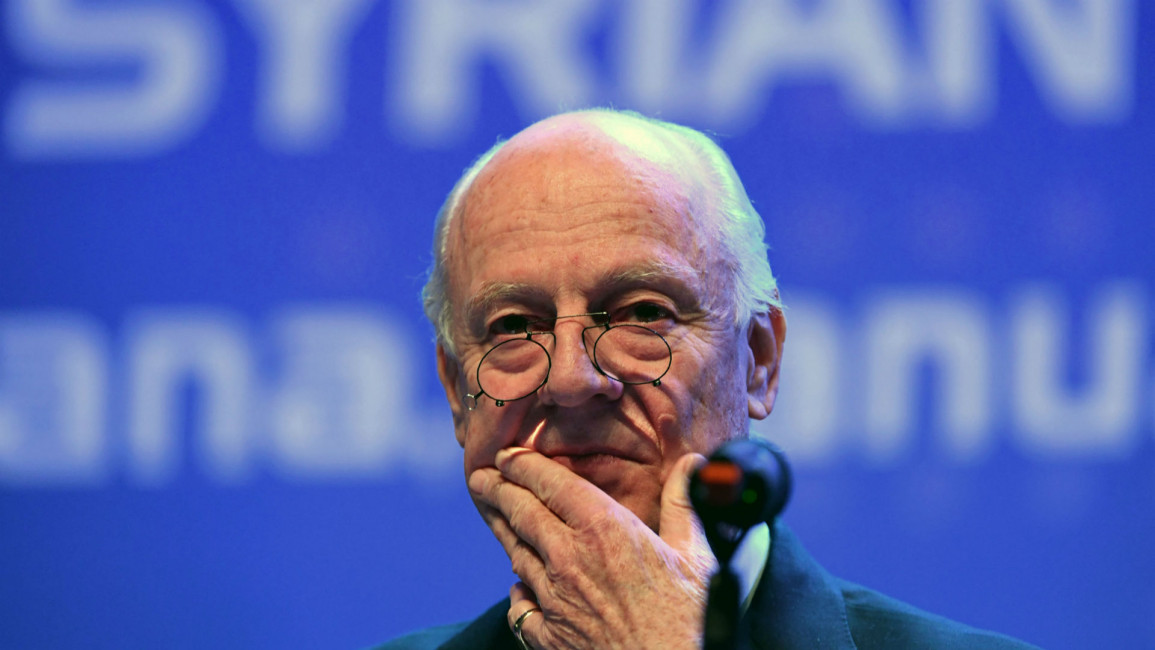Syrian groups urge UN to shun Russia peace talks
Syrian groups urge UN to shun Russia peace talks
The UN's attendance at Russia-led Syria talks in Sochi would add credibility to a process that could entrench President Bashar al-Assad in power, dozens of Syrian civil society groups warned.
2 min read
Syrian groups have warned Sochi talks could derail UN efforts for peace in Syria [Getty]
A group of 120 Syrian civil society groups have urged the United Nations' Syria envoy Staffan de Mistura not to attend Putin-hosted talks in Sochi, warning they would undermine Geneva-led discussions and will entrench President Bashar al-Assad in power.
The organisations that make up the Working Group for Syria said the Russian conference scheduled for the end of January would represent a "dangerous departure from the [UN-led] Geneva process".
Russian President Vladimir Putin is planning to invite Syrian groups and some members of the Syrian official opposition to the two-day Syrian Congress on National Dialogue in the Black Sea resort of Sochi, although many rebel groups have rejected the initiative.
In a joint statement the working group said: "Russia's military intervention in Syria and its repeated use of the veto at the United Nations security council makes Russia a party to the conflict.
"Given its actions in Syria, Russia cannot be regarded as either a neutral mediator or a fair convener of a national dialogue process. The only process that is legitimate or credible is the UN-led process."
| Read more: Hopes for Syria's year ahead |
De Mistura has not confirmed whether he will attend, but has previously said Russia's effort is dependent on its ability to support the UN-led Geneva talks taking place.
He also needs Russia's support to keep Assad's regime involved in UN talks, which failed to make progress in December with De Mistura laying blame on Damascus for the "golden opportunity missed".
The Working Group for Syria's President, Bassam al-Kuwaitii, claimed the Sochi conference was set up to ensure Assad stayed in power by ratifying minor constitutional changes.
"The very fact that the congress is to have 1,700 attendees over two days shows that no genuine negotiations are planned," Kuwaitii is quoted in the Guardian as saying, adding De Mistura's attendance would legitimise the process, rather than allowing the UN to push for political transition, a constitutional referendum and free and fair elections in Syria.
The Syrian conflict began when the Baath regime, in power since 1963 and led by Assad, responded with military force to peaceful protests demanding democratic reforms during the Arab Spring wave of uprisings, triggering an armed rebellion fuelled by mass defections from the Syrian army.
The brutal tactics pursued mainly by the regime, which have included the use of chemical weapons, sieges, mass executions and torture against civilians have led to war crimes investigations.
Rebels still insist on Assad's removal from power as a principal term for any peace deal.



